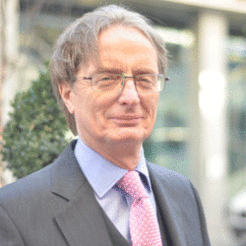Charity sector self-regulation is ripe for expansion, according to the new chairman of the Public Fundraising Regulatory Association.
In an interview with civilsociety.co.uk, after three weeks in his role as the first paid PFRA chair, Paul Stallard said that with the Charities Act 2006 review underway this year, the fundraising sector has a chance to prove the effectiveness, and expand the role, of self-regulation.
“It’s an opportunity to bring face-to-face fundraising - across street, door-to-door, private sites, public sites - all under one self-regulatory banner which at the end of the day can save a lot of money particularly across local authorities and councils. We have proven that working with [councils and local authorities] to the benefit of self regulation works,” he said. “It’s a case of scale and helping it work in scale terms.”
Asked whether this could see the PFRA regulate other kinds of collection or fundraising, Stallard was warm to the idea.
“It could do. If it went that way it would be a perfectly sensible, reasonable, intelligent thing to do. Then you have everyone involved in the process belonging to this regulatory body that’s watching and looking after the process.”
A spokesman for the PFRA, however, said this would more likely involve the association working with other organisations to develop self-regulation for things such as clothing collections, rather than regulating these other activities itself.
Never signed up
Stallard, who had neither heard of the PFRA nor signed up via a face-to-face fundraiser before becoming chair, said he had mixed experiences of street fundraisers in the past.
“I have the classic grand sample of one: being accosted outside the Marks & Spencer’s outside of Moorgate very badly. I was upset profusely by someone doing [street fundraising] very badly. Contrast that to three weeks later [encountering] someone who did it brilliantly,” he said. “I’ve seen more good than bad, but there is one really bad episode.”
“I can understand people getting upset about that. When it’s bad it’s bad… If [fundraisers] can engage you properly, and are trained properly, they can invoke a very interesting conversation.”
His wife, however, has signed up twice on their joint behalf, said Stallard.
Next steps
Stallard is now charged with working to appoint a new chief executive following the stepping down of Mick Aldridge last autumn, a process which has begun, and has already chaired a board meeting. While yet to meet the chairmen of the Institute of Fundraising and Fundraising Standards Board, he said this was on the cards.
He has already chaired a board meeting, which he described as “excellent” and “democratic” and said his position as an outsider, without involvement in fundraising or charity, put him in a strong position. “I can rise above the politics, because it doesn’t interest me. It’s about the membership of the PFRA and how what they do affects beneficiaries and donors,” he said.
Stallard also expressed an interest in moving the public debate beyond being bogged down in fundraising ‘costs’, suggesting this was holding the sector back.









